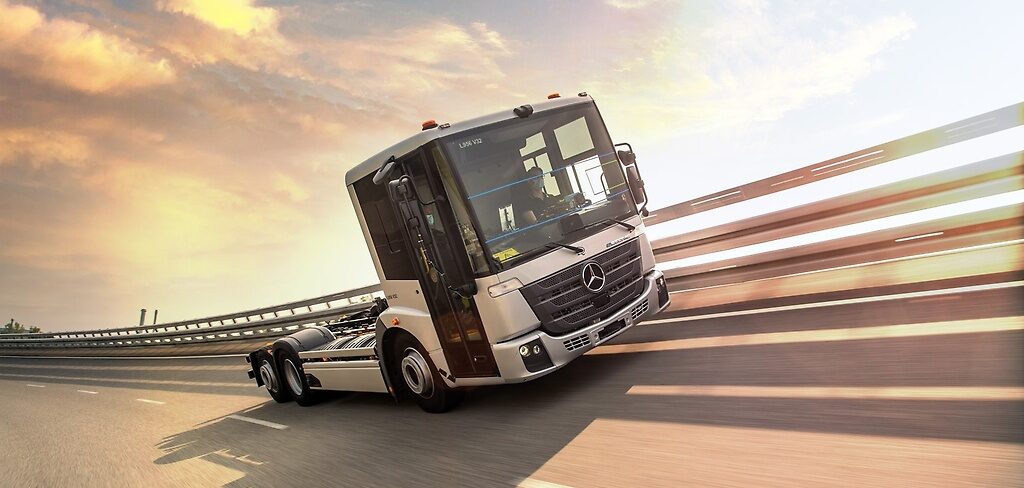Through a series of intensive tests, Mercedes-Benz Trucks is continuing the development phase of its battery-electric truck, the eEconic, aimed at municipal operations. At present, the German OEM’s engineers are focusing on the commercial vehicle’s safety, performance and durability.
The eEconic is also undergoing other test phases, which include noise measurements, electromagnetic compatibility (EMC) and rough road test drives. Upon completion, the vehicle will be used by customers in a real-life operation test phase.
The eEconic’s vehicle architecture, and its low-floor design, is based on the Mercedes eActros truck, developed for heavy-duty distribution. Because of this, the technical specifications of the eEconic are very similar to the eActros platform.
Designed as a refuse collection vehicle, the eEconic will in the future be able to cover large areas and routes without needing to recharge part-way through operations. It will also be locally CO₂-neutral and produce fewer noise emissions when compared with traditional refuse vehicles.
Featuring a gross vehicle weight of 27 tons, the eEconic will be launched on the market as a refuse collection vehicle with a 6×2 wheel configuration. The drive unit consists of an electric axle with two liquid-cooled, integrated electric motors and a 2-speed transmission. Three battery packs, each with an energy capacity of around 105kWh, feature and help to output 330kW and a maximum performance figure of 400kW.
The eEconic will be subjected to further battery and electric powertrain tests in the summer and the winter, with series production scheduled to start in the second part of 2022 at the company’s plant in Wörth, Germany.


